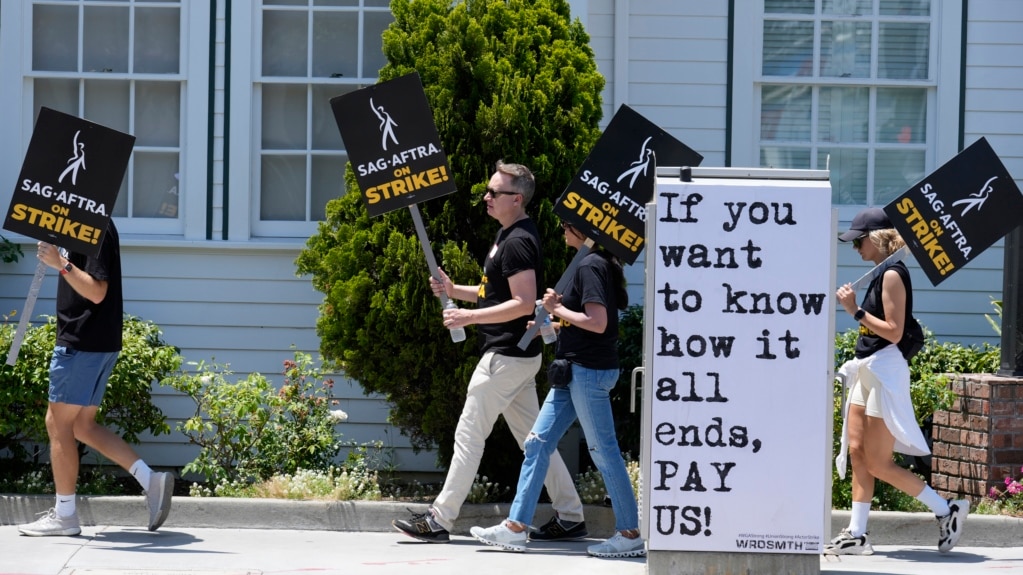The Writers Guild of America (WGA) said Sunday that it had reached an agreement with Hollywood movie and television studios. The announcement signaled that the group’s five-month strike is nearing an end.
The WGA is the labor group that represents writers in the United States who work on many movies and television programs.
The writers’ group said its members will not yet return to work, but they will no longer protest – or picket – outside movie studios.
The WGA said it reached an agreement with the Alliance of Motion Picture and Television producers for a tentative three-year deal. It is called “tentative,” which means not certain, because it must still be approved by the WGA’s leaders and members. A vote could happen this week.
The WGA said its labor stoppage lasted more than 140 days. If it had gone five days longer, the strike would have been the longest in WGA history.
When the new contract is approved, programs that depend on writers who have not been working could be back on television within days. Those include nightly comedy programs such as The Tonight Show Starring Jimmy Fallon and Jimmy Kimmel Live!.
The news made some media experts think the actors’ group – known as SAG-AFTRA – could be close to ending its strike.
SAG-AFTRA congratulated the WGA on reaching its agreement. It used words such as “strength, resiliency and solidarity” to describe the writers’ group’s decision to hold out for a good deal.
SAG-AFTRA added, “We remain committed to achieving the necessary terms for our members.” It also said it wants the studio leaders to “return to the table and make a fair deal that our members deserve and demand.”
The writers and studio heads made their agreement without intervention from government officials. That has happened in the past.
State and local government leaders congratulated the two groups on their new plan. California Governor Gavin Newsom said he was “grateful the two sides have come together.”
One of the main issues that caused the strike was how writers are paid by streaming video services such as Netflix. Another issue was the use of artificial intelligence technology in the creation of scripts. The strike stopped production on a number of daily television programs and delayed upcoming television shows and movies that had been planned for production.
The writers started their strike on May 2. Film and television actors stopped working on July 14. The two groups had not gone on strike at the same time since 1960.
I’m Dan Friedell.

